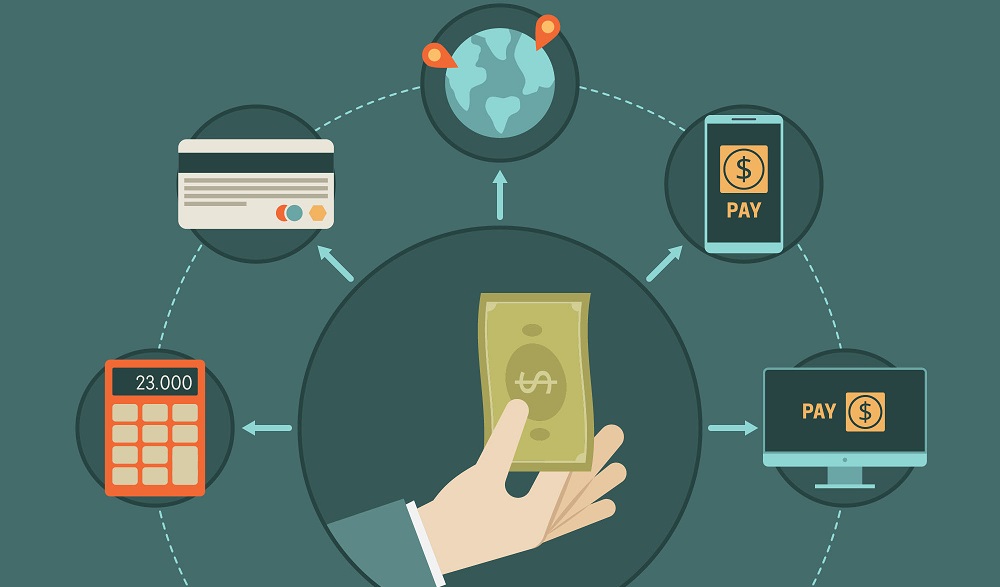Most Common Payment Methods for Deposits and Withdrawals
When it comes to managing finances on online platforms, it’s essential to navigate the various payment methods available. These methods range from traditional credit cards to newer options like cryptocurrency. Understanding the specifics of each method can greatly impact your online transactions.
Before making decisions on deposits and withdrawals, it’s important to delve into the details of the most common payment methods at your disposal.
Credit Cards
Credit cards are commonly used for deposits and withdrawals on online platforms due to the speed of transactions and security features they offer. Transactions are processed quickly, allowing users to access their funds promptly. Credit cards provide security measures like fraud protection and encryption to secure financial information from unauthorized access.
Storing card details securely on the platform allows for easy recurring payments or withdrawals without repetitive data entry. It’s advisable to monitor transactions regularly and report any suspicious activity promptly to the card issuer.
E-Wallets
E-Wallets, including popular options like PayPal, Skrill, and Neteller, offer a practical solution for handling online transactions efficiently. These digital wallets allow users to securely store funds and conduct quick deposits and withdrawals across various online platforms. By associating a bank account or credit card with an E-Wallet, users can facilitate money transfers without repeatedly inputting financial details.
E-Wallets enhance security by obfuscating sensitive information during transactions, thereby reducing the likelihood of fraud. Moreover, many online businesses, including casinos and e-commerce websites, accept E-Wallet payments, enhancing their versatility and widespread adoption for online financial management.
Consider utilizing E-Wallets for a convenient and secure payment experience.
Bank Transfers
Bank Transfers are a common method for transferring funds between bank accounts securely and efficiently. This payment process involves electronically moving money from one bank account to another without the need for third-party intervention. Users can easily deposit funds into their trading accounts or withdraw earnings through bank transfers.
While deposits are typically processed quickly, withdrawals may take longer due to bank processing times. It’s important to be aware that some financial institutions may impose fees for bank transfers, so it’s advisable to confirm this with your bank in advance.
Cryptocurrency
Cryptocurrency has gained traction as an alternative payment method for financial transactions, moving beyond traditional bank transfers. Its decentralized nature and use of secure blockchain technology offer a convenient and efficient way to transfer funds globally. Popular cryptocurrencies like Bitcoin and Ethereum facilitate quick transactions at lower fees compared to conventional banking methods.
Furthermore, utilizing cryptocurrency for deposits and withdrawals can provide users with enhanced privacy and anonymity. As digital currencies gain acceptance, more businesses are incorporating cryptocurrency as a legitimate form of payment. Consider exploring the use of cryptocurrency in financial transactions for a modern and streamlined approach to managing funds.
Prepaid Cards
In the current financial landscape, prepaid cards have become a practical tool for effectively managing finances. These cards are preloaded with a specific amount of money, offering users convenience and control over their spending. Prepaid cards are widely available for purchase at retail outlets and online, ensuring accessibility for a broad audience.
Depositing funds onto a prepaid card is a simple and secure process, enabling users to make online transactions or shop at physical stores. Withdrawals can be made at ATMs, providing easy access to funds. With their flexibility and user-friendly features, prepaid cards have gained popularity among individuals seeking a convenient payment option.
Conclusion
In summary, a range of payment methods are available for conducting deposits and withdrawals on online platforms. These include credit cards for quick and secure transactions, e-wallets for added convenience, bank transfers for reliability, cryptocurrencies for enhanced privacy, and prepaid cards for controlled spending. It is essential to choose the payment method that aligns with your preferences and needs to facilitate seamless online transactions.

